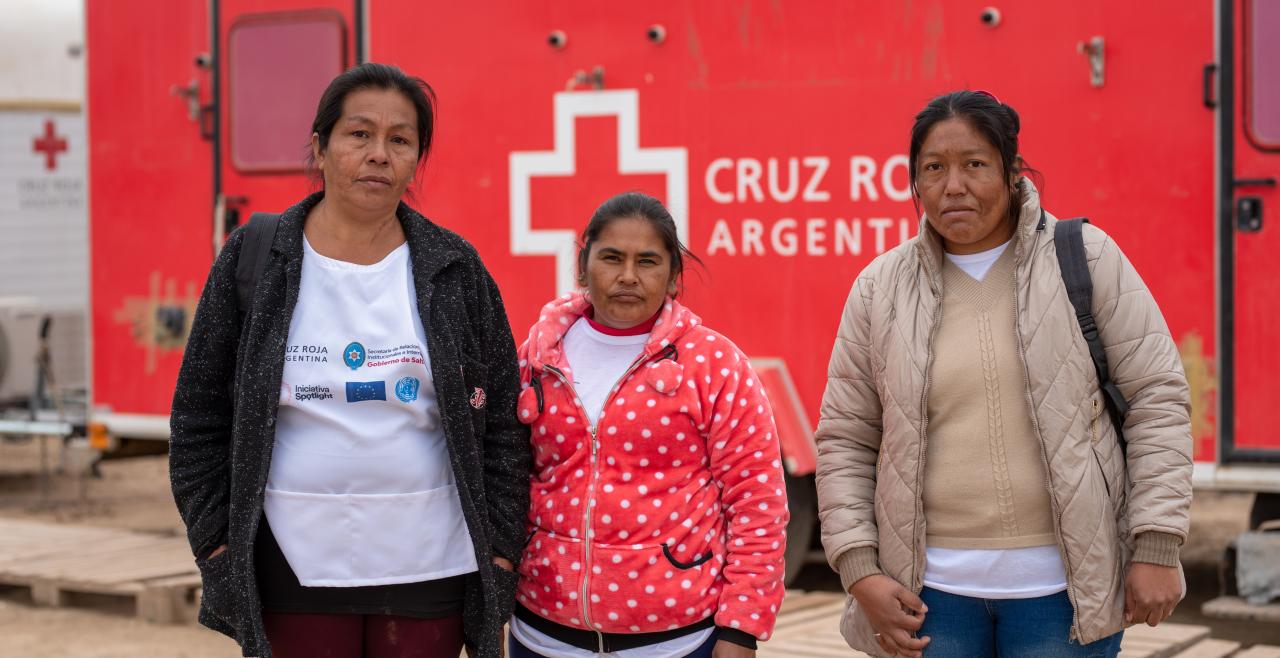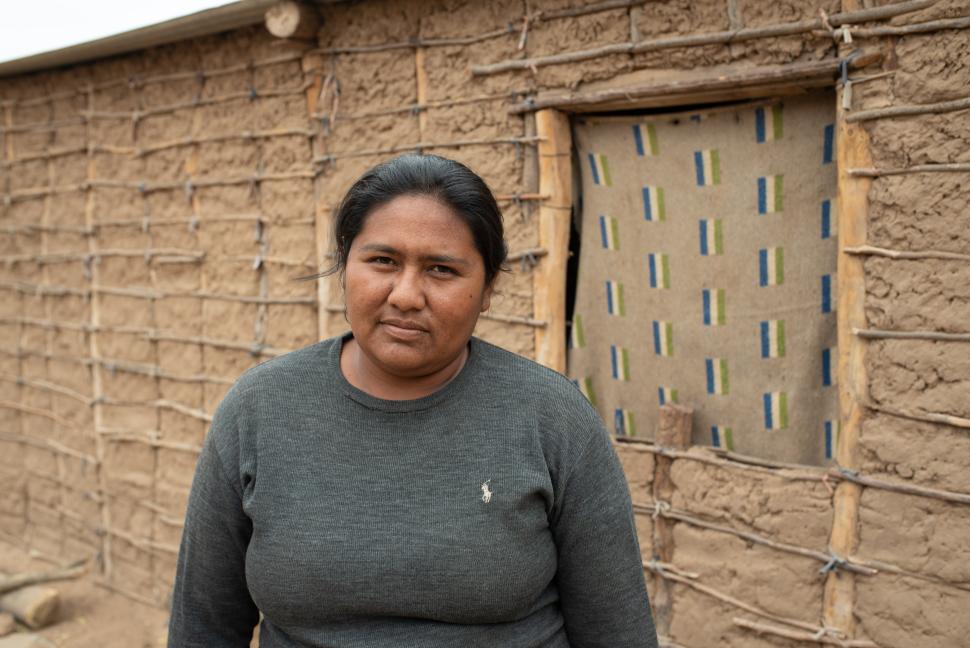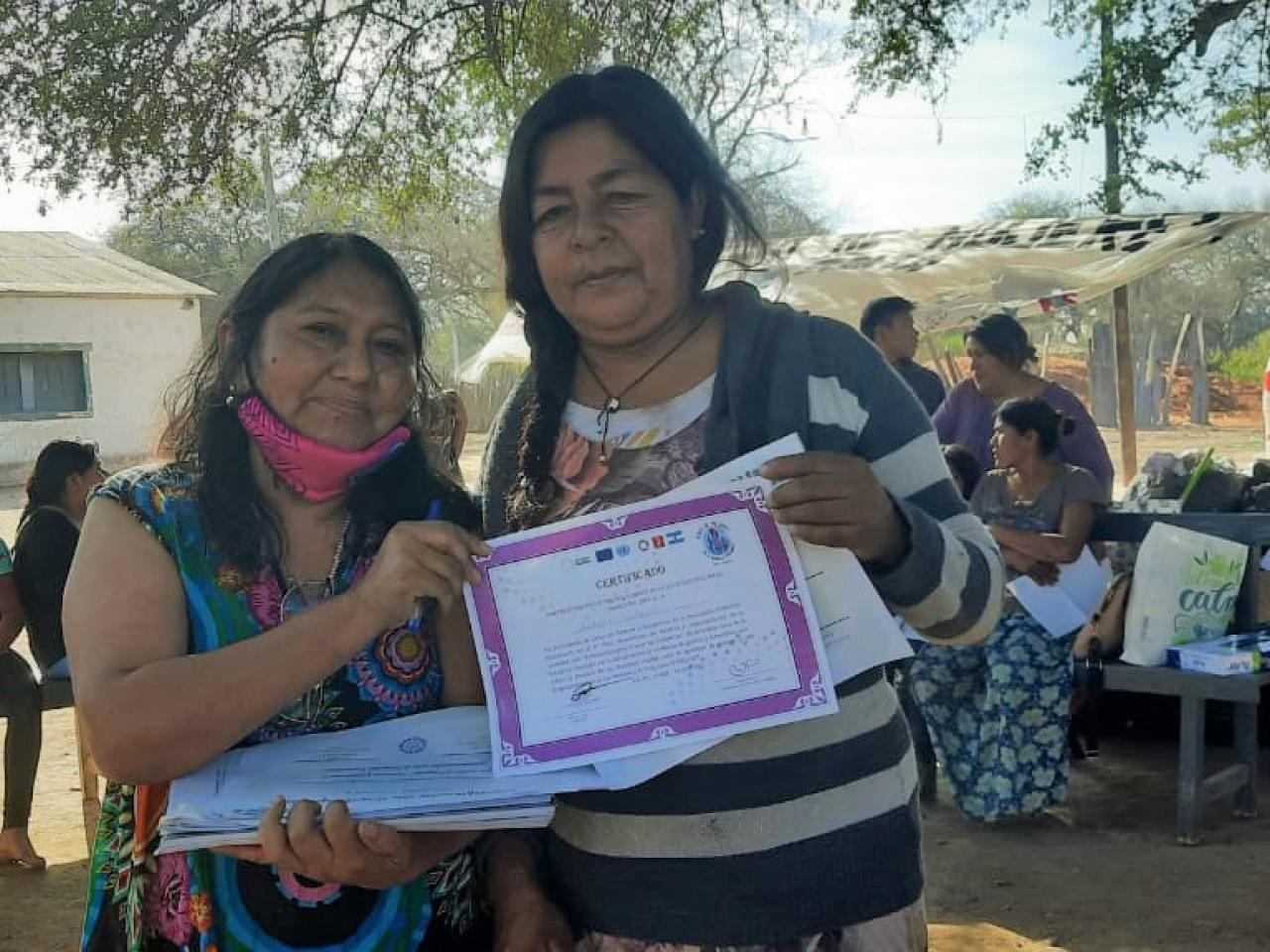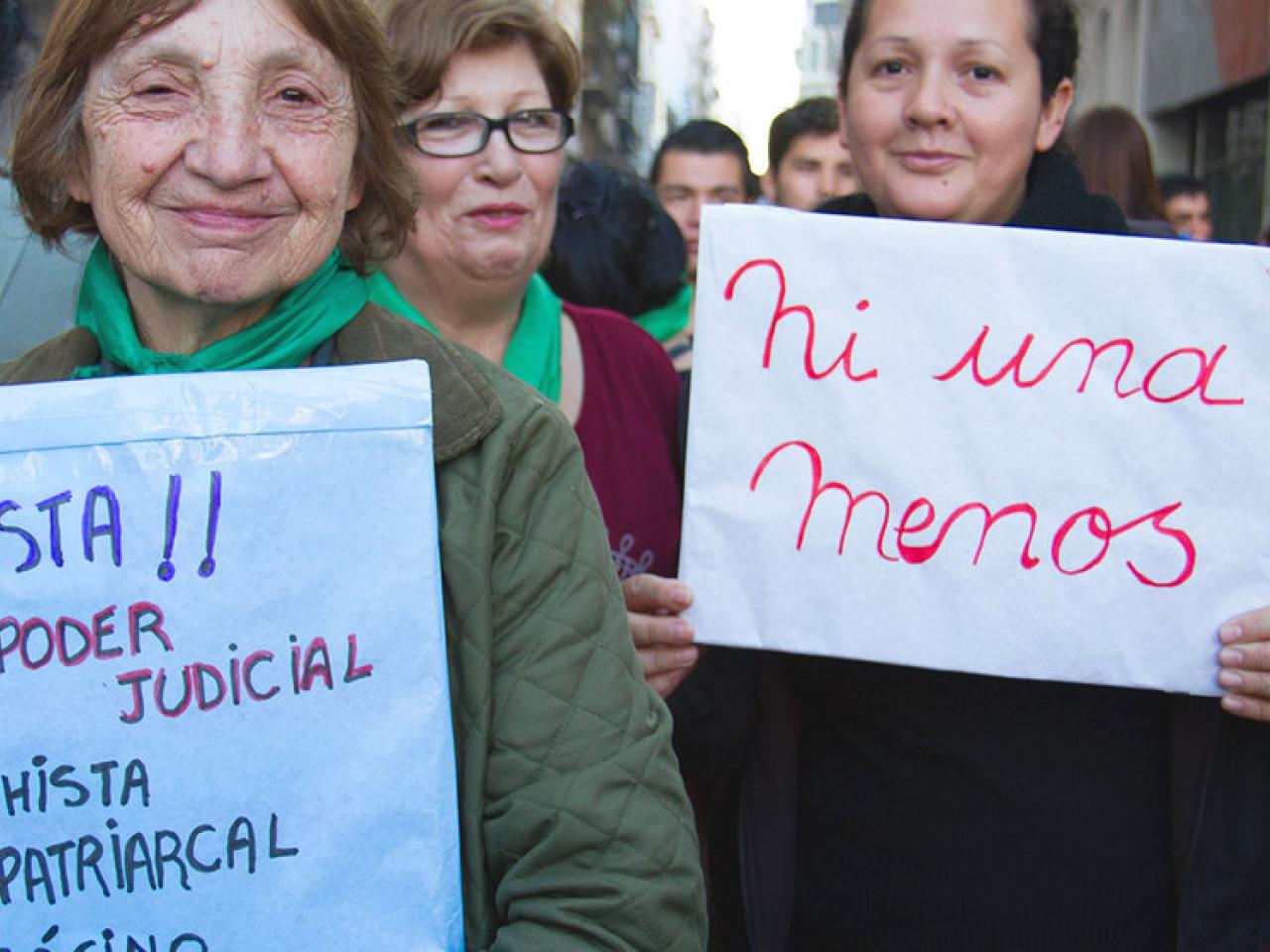How the indigenous women of Salta are working to prevent gender-based violence in their communities

SALTA, Argentina - “Information doesn't reach our communities,” says Estela Torres, who comes from the Toba community of Monte Carmelo Komlahachaca in Salta province. She joined one of Spotlight Initiative’s gender-based violence prevention workshops in 2021 and trained as a ‘Local Promoter’ in an effort to help close this information gap. “Violence is a very important issue for me because I’ve had experiences [with it],” revealed Rosa Ferreyra, another attendee and Local Promoter from the same community.
According to statistics from the Women's Office of the Supreme Court of Justice of the Nation, Salta has one of the highest femicide rates in the country (1.78%). In 2021 there were 13 femicides in the district: one woman killed for every 56,040 women in Salta. This year, there have already been five femicides in the province. Three of the women and girls killed were indigenous, according to the Gender Violence Observatory Ahora Que Sí Nos Ven (Now that they see us), and two of the victims were indigenous adolescents aged 12 and 14 from Salta.
“I see husbands mistreat women. There are young girls and adolescents who also suffer,” says Ana Clara, Cacica (leader) of the Wichi community Six Brothers. “I sometimes explain it to my community. I tell them that it doesn't have to be like that.”
The Spotlight Initiative is working with UNFPA, the government of Salta and the SCO Red Cross to run awareness-raising workshops focused on the promotion of sexual and reproductive rights, and the prevention of gender-based violence in indigenous communities. The project trains women as local promoters so they can share their knowledge with their communities.
Workshops cover how to identify cases of violence, including sexual violence and the exploitation of women and children; how to make a safe referral to the relevant services; and how to follow up on cases. They also focus on contraceptive methods and the prevention of STIs. For many of these women, it’s the first time they’ve participated in this kind of activity. In a respectful environment, they share different experiences of violence —especially in health institutions. Indigenous women often face additional discrimination due to both their gender and their indigenous identity when accessing services.
"I had my first baby by cesarean section. When they managed to get him out, they told me he was dead. They didn't even let me say goodbye," revealed one of the women.
"I had my first baby by cesarean section. When they managed to get him out, they told me he was dead. They didn't even let me say goodbye," revealed one of the women.
“I had a cesarean section for my second child. They kept me open for more than two hours without sewing me, without anesthesia. I begged them to sew me up, but the nurses only laughed and made fun of me saying: ‘why are you complaining if this is your second child, you should be used to it by now’. I was in so much pain that I started crying and only then, they finally sewed me up,” shared another.
“We continue to work with a strong focus on the territories where the largest gaps exist, so that women, young people and adolescents can make free and informed decisions and thus exercise their bodily autonomy, without violence or coercion,” explained Mariana Isasi, Head of UNFPA Argentina. “We are convinced that sensitized communities and people can transform realities.”
These workshops focus on women from indigenous communities, but also state officials, including health personnel. Edgardo Sosa, General Manager of the Santa Victoria Este hospital, explained the importance of having medical practitioners who are able to help people understand their reproductive rights.
“We have pregnant teenagers. One of the main ways to address this issue is training doctors in contraceptive methods, how to use them and breaking down myths,” he said.
More than 100 women from the communities were trained as well as 42 state officials. An intercultural and rights approach is taken to ensure that officials can assist indigenous women experiencing violence in a respectful and understanding way.
Ms. Torres said the workshops were very useful for communities like hers where information is scarce. “We are now able to take the message to young girls, teach them how they can take care of themselves,” she explained. She highlighted the importance of knowing that they have the right to make choices about their bodies, life and future: “It's very important for women, adolescents and girls to know that we as women can decide”.
By Maria Isabel Guelfo



